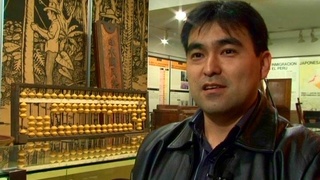Interviews
Japanese American Taiko
I think we’re rapidly getting to the point where the concept of Japanese American is getting old. It’s not necessary. We really have to keep a broader view.
For example, to take taiko. Taiko began as a Japanese American kind of experience, but it grew out of that. It’s much more than that, now. It’s taiko as a art form. It’s no longer Japanese-American-taiko. I think when we first started, we used to hyphenate the hell out of it. It was “Japanese-American-Buddhist-Taiko.” We had all the little hyphens in there. And what Mas used to say is, “These hyphens are important.” It’s kind of like the space between the beats. You know. But that these terms may be important at the beginning to kind of identify us, say, as different from conga drums or something like that.
But now, taiko has become part of the drum set of a lot of modern trap players. They put taiko in there, or the woodblocks. It becomes part of the vocabulary of music in general. I think the koto is good example. Synthesizers now have koto sound as part of their many vocabulary. It’s like teriyaki. Everybody knows what teriyaki is. Or sushi. When that starts happening with taiko, it’s lost its Japanese American identity, and certainly it’s lost its generational. It doesn’t have any meaning anymore. I think that’s the way it’s going to go. I think that’s the beauty of it.
Date: December 10, 2004
Location: California, US
Interviewer: Art Hansen, Sojin Kim
Contributed by: Watase Media Arts Center, Japanese American National Museum









